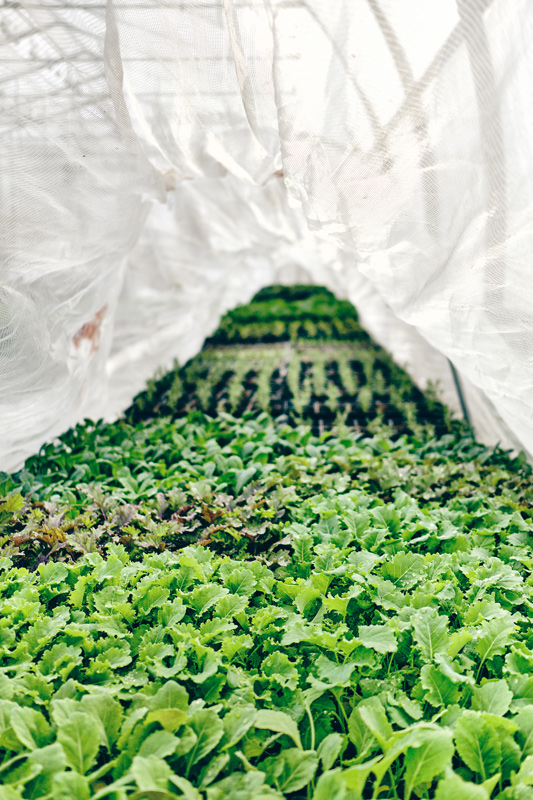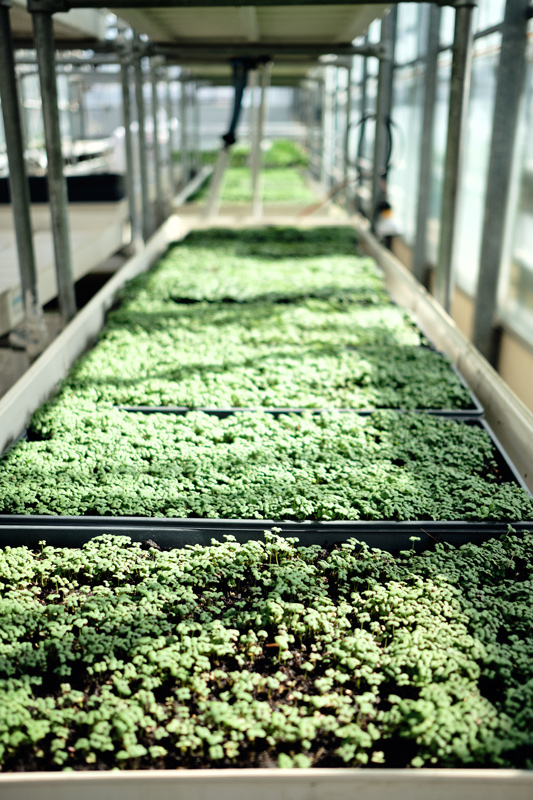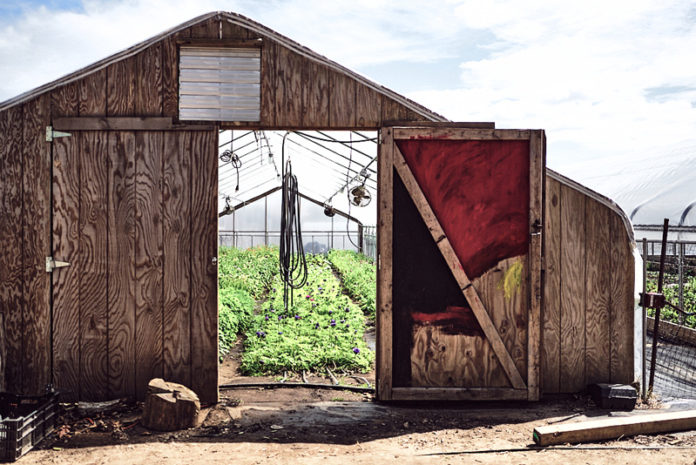Driving around, you might notice the Island is heavily populated with farm stands overflowing with gorgeous vegetables and fruits, grown right in the Island soil. This was not always the case — with a growing season typically held hostage to an often cool, gray spring, crops could be slow to grow, and Islanders ended up with farm-fresh Vineyard produce sometime in late June (if we were lucky).
In the past, farmers had open fields just waiting for the perfect temperature to warm the soil enough to drop fragile seedlings into the cool earth. Over the past few years, Island farmers, like farmers around the country, are looking at their farmland acreage and their growing season differently. Many are using hoop houses to extend the season by several months, basically adding an additional growing and harvesting season starting in April — with lettuces, kale, pea shoots, hakurei turnips, carrots, bok choy, arugula, and more being harvested from the shelters you see on these pages, and ending up on your dinner table. Many farm stands may also be loaded up with young plants like tomatoes, herbs, chard, kale, celery, and others ready for outdoor planting, long before they traditionally ever were. How lucky are we?
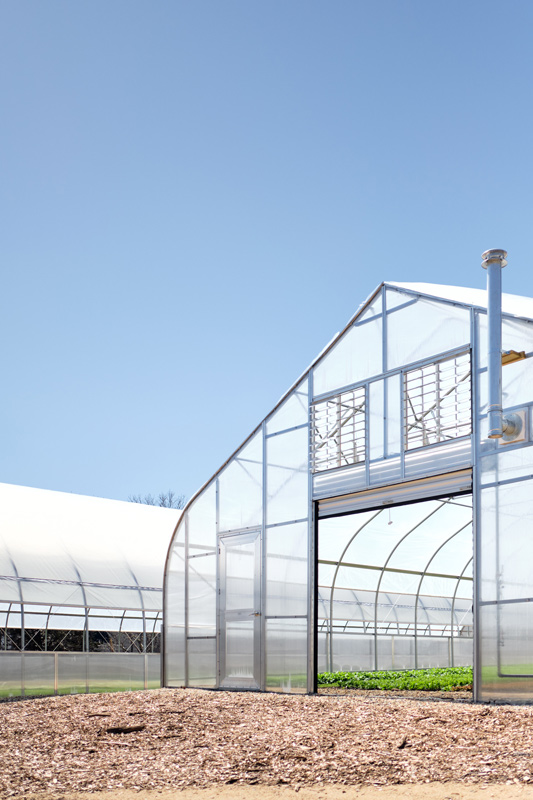
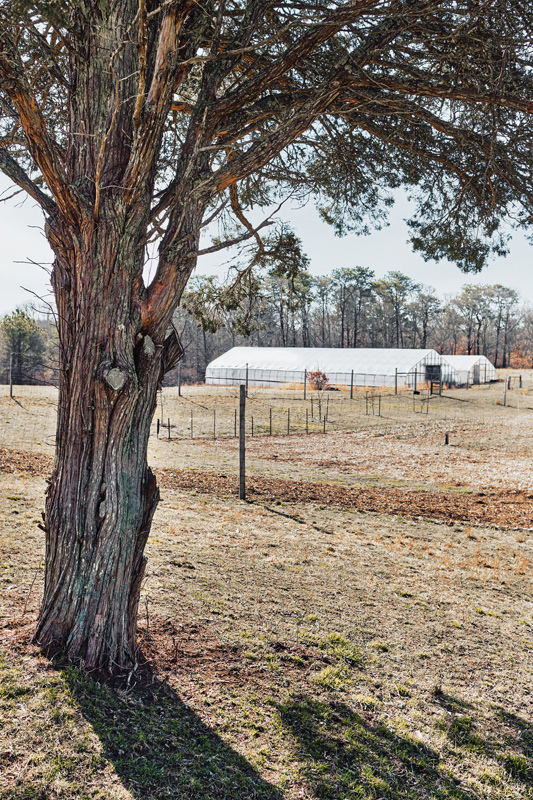
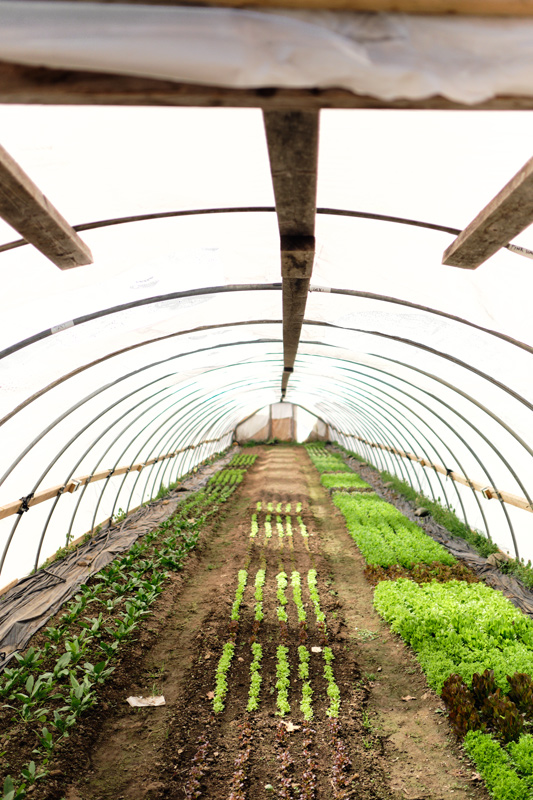
So, what are hoop houses? A hoop house, also known as a polyhouse, hoop greenhouse, or hoophouse, grow tunnel, polytunnel, or high tunnel, is as defined by Wikipedia as “a tunnel typically made from steel and covered in polyethylene, usually semicircular, square, or elongated in shape.” The interior heats up with incoming solar radiation from the sun warming the plants, soil, and other things inside the building faster than heat can escape the structure.
And what is the difference between a hoop house and a greenhouse? Greenhouses are a permanent structure on your farmland, made of glass and steel, sealed tight, with heat and fans for temperature control. Greenhouses are not cheap to design and install. A hoop house works as a combination of greenhouse and open field production, basically a hybrid.
So go enjoy your June turnips.
